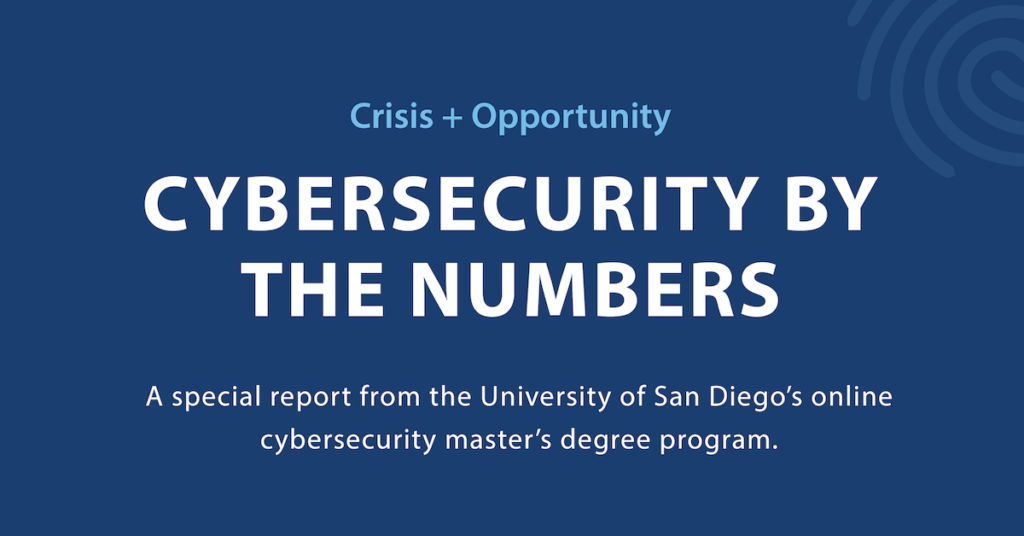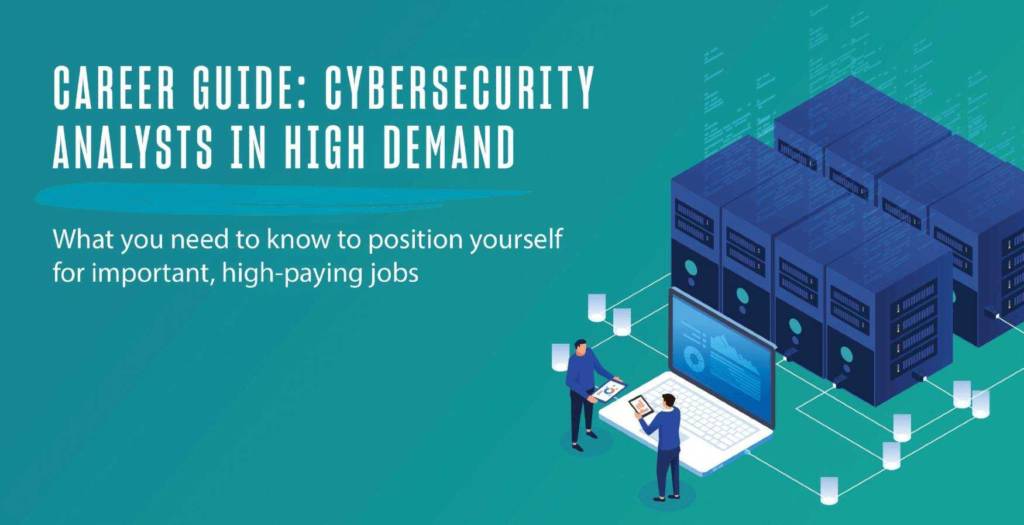Do you think like a malicious hacker and a big-picture business IT executive? Both of these mindsets are needed to be an effective cybersecurity architect — an in-demand position with salaries averaging $150,000 a year if you possess the required expertise and experience.
This post will examine cybersecurity architect job responsibilities, skill sets, career paths, salaries, certifications and more.
What Is a Cybersecurity Architect?
A cybersecurity architect is a senior-level position responsible for planning, designing, testing, implementing and maintaining an organization’s computer and network security infrastructure. The role requires thorough knowledge of the employer’s business and a comprehensive understanding of the technology it uses to conduct operations.
Several key attributes of an effective cybersecurity architect include:
- The ability to think like a hacker in order to anticipate and defend one’s organization against information security risks
- The ability to think like a business executive, manage security team members and communicate effectively with key stakeholders
- The experience and technical expertise to build security infrastructure from scratch or update existing systems in response to ongoing changes in the security landscape, including new risks and adherence to applicable regulations
Also referred to as a security architect or information security architect, the position is a sought-after role for seasoned IT professionals.
Cybersecurity Architect Job Responsibilities
The duties of a cybersecurity architect may differ by industry and according to a company’s unique needs, but core responsibilities typically include the following:
- Develop a complete understanding of a company’s technology and information systems
- Design, build, implement and support enterprise-class security systems
- Align organizational security strategy and infrastructure with overall business and technology strategy
- Identify and communicate current and emerging security threats
- Design security architecture elements to mitigate threats as they emerge
- Plan, research and design robust security architectures for any IT project
- Perform or supervise vulnerability testing, risk analyses and security assessments
- Create solutions that balance business requirements with information and cybersecurity requirements
- Identify security design gaps in existing and proposed architectures and recommend changes or enhancements
- Review and approve installation of firewalls, VPNs, routers, IDS scanning technologies and servers
- Test security systems to ensure they behave as expected
- Use current programming languages and technologies to write code, carry out programming tasks and perform testing and debugging of applications
- Provide supervision and guidance to a security team
- Define, implement and maintain corporate security policies and procedures
- Train users in implementation or conversion of systems
- Respond immediately to security-related incidents and provide thorough solutions and analysis
- Regularly communicate vital information, security needs and priorities to upper management
Security Architect vs. Security Engineer
A similar yet distinct role is that of a security engineer, which is also known as a cybersecurity engineer or information security engineer.
These professionals identify threats and vulnerabilities in systems and software and then apply their skills to developing and implementing high-tech solutions to defend against all types of insider threats and cybercrime.
According to CompTIA, security architects establish the vision for security systems, whereas engineers determine how to implement it. Security engineers may transition into security architecture roles if they wish to shift from hands-on cybersecurity to policy and governance.
Cybersecurity Architect Career Paths
Within an organization’s IT hierarchy, the position is higher up the org chart than a security engineer or analyst and below a chief technology officer (CTO), chief security officer (CSO) or chief information security officer (CISO).
[RELATED] Chief Security Officer — High Demand, ‘Skyrocketing’ Pay for CSOs >>
To qualify for a senior-level position that includes security team supervision and effective ongoing communication with C-level executives, a cybersecurity architect typically must have at least five years of experience in information security roles. For some, the career path might include several of the following steps along the way.
Entry-level security positions such as:
- Security administrator
- Network administrator
- System administrator
Intermediate-level positions such as:
- Security analyst
- Security engineer
- Security consultant
- Security specialist
Popular cyber resource CyberSeek also lists the following potential pathways to becoming a cybersecurity architect: cybercrime analyst/investigator, incident analyst/responder and penetration and vulnerability tester.
Cybersecurity Architect Skills
According to CyberSeek, the top skills requested for cybersecurity architects in job listings include:
- Cybersecurity
- IT security architecture
- Computer science
- Identity and access management
- Amazon Web Services
- Vulnerability
- Authentications
- Microsoft Azure
- Firewalls
Cybersecurity and Infrastructure Security Agency lists the following core competencies for a security architect:
- Business continuity
- Client relationship management
- Computer network defense
- Computer and electronics
- Data analysis
- Enterprise architecture
- Information technology assessment
- Mathematical reasoning
- Risk management
- Systems integration
- Technology awareness
- Telecommunications
Core knowledge and skills include:
- Knowledge of application firewall concepts and functions
- Electrical engineering as it applies to computer architecture
- Enterprise information technology architectural concepts
- Determining how a security system should work
- Computer algorithms
- Remote access technology concepts
In addition, Zippia also provides a list of skills that are typically needed for senior security architect positions:
- Cloud security
- Risk assessments
- Encryption
- Windows
- Security architecture
- Security tools
- Security policies
- Infrastructure
- Switches
- Java
- Security programs
- National Institute of Standards and Technology (NIST) framework
Just to give you a feel for what employers are looking for, here are some bullets taken from security architect postings on LinkedIn:
- In-depth understanding of network protocols such as TCP/IP, DNS, DHCP, SNMP, BGP, OSPF, EIGRP, MPLS, SD-WAN and VLANs, along with their implementation and troubleshooting.
- Knowledge of government regulations, compliance and requirements related to Information Security (e.g., GLBA, GDPR, SOXA 404, FFIEC, PCI, privacy, HIPAA, etc.).
- Experience with vulnerability scoring frameworks and threat modeling methodologies.
- Exceptional verbal and written communication skills, specifically the ability to communicate within the context of the intended audience, whether that be senior executives or highly technical engineering resources.
- Hands-on experience securing hybrid and cloud native infrastructure is highly preferred.
See What a Cyber Security Masters Program Looks Like for Working Professionals
Cybersecurity Architect Jobs and Salaries
Jobs and Career Outlook
The outlook for cybersecurity architects is extremely promising. Jobs for information security analysts, which is a closely related position, are projected to grow 32% from 2022 to 2032 (the average growth rate for all occupations is 3%).
Cybersecurity Architect Salary
The high average salaries paid to cybersecurity architects reflect both the considerable skills and experience required, as well as the overall shortage of top-level cybersecurity talent. It’s important to note, however, that compensation will depend on a variety of factors, including the role, business/organization, where the position is located and how much experience is required.
Here are some salary ranges to give you an idea of what you can earn as a security architect:
- Base pay range of $127,000–$189,000 (Glassdoor)
- Average salary of $128,636 with a range of $92,000–$179,000 (Zippia)
These positions are also needed across a wide variety of industries. A recent review of security architect, cybersecurity architect and information security architect positions listed on LinkedIn revealed a wealth of opportunities at major employers throughout the country, including:
| – Salesforce – Deloitte – Cardinal Health – Western Union – Garmin – Warner Bros | – MassMutual – Microsoft – Bank of America – Mass General Brigham – Jet Blue | – Discovery – New Balance – Honeywell – NYC Department of Social Services – Booz Allen Hamilton |
Cybersecurity Architect Certifications and Educational Requirements
Certifications play a vitally important role in the cybersecurity industry; they teach new skills, enable IT professionals to build upon their existing experience and expertise and certify levels of competency to prospective employers.
Several of the most notable certifications for cybersecurity architects and related professions include:
- Certified Information Systems Security Professional – Information Systems Security Architecture Professional (CISSP-ISSAP)
- Certified Information Systems Security Professional (CISSP)
- Certified Information Security Manager (CISM)
- Certified Information Systems Auditor (CISA)
- SANS-related certifications such as GIAC Defensible Security Architecture (GDSA)
In terms of education, most companies and organizations require at least a bachelor’s degree in computer science, information technology or a related field. According to CyberSeek, 42% of employers require a bachelor’s degree while 57% require a graduate degree.
Due to the increasing demand for security architects and other cyber professionals, more colleges and universities are now offering cyber security-specific bachelor’s and master’s degree programs — both on-campus and online.
[RELATED] 10 Reasons to Join a Cybersecurity Master’s Degree Program >>
Steps to Become a Security Architect
A cybersecurity architect is considered an advanced position, which means it’s not something you can jump right into after earning a bachelor’s degree.
Many security architects have an undergraduate background in computer science, information technology, cybersecurity or a related field. This type of education will allow you to start with an entry-level cybersecurity position, such as cybercrime analyst, cybersecurity specialist or IT auditor.
Consider supplementing your education with certifications and a master’s degree. Top certifications include Certified Information Systems Security Professional, Certified Information Security Manager, GIAC Certifications, Certified Ethical Hacker and CompTIA Security+.
After obtaining a few years of entry-level experience, consider a mid-level role such as a cybersecurity analyst, cybersecurity consultant or penetration and vulnerability tester.
Investing in a master’s degree is also important since more than half of security architect job postings require an advanced education.
What Are Some Other Top Cybersecurity Careers?
Cybersecurity is a fast-growing, high-paying field with a range of different types of job openings. Which role might be ideal for you? Take a moment to explore some of the other exciting careers in cybersecurity:
- Penetration tester
- Ethical hacker
- Security consultant
- Network administrator
- System administrator
- Cybersecurity analyst
- Security auditor
- Cybersecurity specialist
- Cybersecurity consultant
- Chief information security officer (CISO)
If you’re looking to explore a career as a cybersecurity architect, consider obtaining a master’s degree from the University of San Diego. Choose from the 100% online Master of Science in Cyber Security Operations and Leadership or the Master of Science in Cyber Security Engineering degree (online or on-campus), both of which can be completed in as little as 20 months.
Frequently Asked Questions
Article Sources
CyberSeek, “https://www.cyberseek.org/.”
University of San Diego, “Should You Become a Cybersecurity Engineer?, https://onlinedegrees.sandiego.edu/should-you-become-a-cyber-security-engineer/.”
CompTIA, “Your Next Move: Security Architect, https://www.comptia.org/blog/your-next-move-security-architect.”
University of San Diego, “How Can I Get an Entry-Level Cybersecurity Job? [Career Guide], https://onlinedegrees.sandiego.edu/entry-level-cyber-security-jobs-guide/.”
University of San Diego, “How to Become a Network Administrator [Career & Salary Guide], https://onlinedegrees.sandiego.edu/network-administrator-career-salary-guide/.”
University of San Diego, “Should You Become a Cybersecurity Engineer? https://onlinedegrees.sandiego.edu/should-you-become-a-cyber-security-engineer/.”
University of San Diego, “How to Become a Security Consultant [Career Guide], https://onlinedegrees.sandiego.edu/how-to-become-a-security-consultant-career-guide/.”
University of San Diego, “How to Become a Cybersecurity Specialist [+ Career & Salary Guide], https://onlinedegrees.sandiego.edu/cyber-security-specialist-career-guide/.”
CyberSeek, “Cybersecurity Career Pathway, https://www.cyberseek.org/pathway.html.”
Cybersecurity and Infrastructure Security Agency, “Security Architect, https://www.cisa.gov/careers/work-rolessecurity-architect.”
Zippia, “Senior Security Architect Skills for Your Resume and Career, https://www.zippia.com/senior-security-architect-jobs/skills/.”
U.S. Bureau of Labor Statistics, “Information Security Analysts, https://www.bls.gov/ooh/computer-and-information-technology/information-security-analysts.htm.”
Glassdor, “How much does a Security Architect make? https://www.glassdoor.com/Salaries/security-architect-salary-SRCH_KO0,18.htm.”
Zippia, “Security architect salary, https://www.zippia.com/salaries/security-architect/.”
LinkedIn, “https://www.linkedin.com.”
ISC2, “ISC2 Cybersecurity Certifications, https://www.isc2.org/certifications.”
ISC2, “CISSP – Certified Information Systems Security Professional, https://www.isc2.org/Certifications/CISSP.”
ISACA, “Make the Move From Team Player to Leader, https://www.isaca.org/credentialing/cism.”
ISACA, “In a World Full of Auditors, Be a CISA, https://www.isaca.org/credentialing/cisa.”
GIAC Certifications, “GIAC Defensible Security Architect Certification (GDSA), https://www.giac.org/certifications/defensible-security-architecture-gdsa/.”
University of San Diego, “Penetration Testers on the Front Lines of Cyber Security, https://onlinedegrees.sandiego.edu/vulnerability-and-penetration-testing/.”
University of San Diego, “Ethical Hacking: Careers, Salary and Degree Questions Answered, https://onlinedegrees.sandiego.edu/ethical-hacker-career-salary-guide/.”
University of San Diego, “Cybersecurity Holds Opportunity for Systems Administrators, https://onlinedegrees.sandiego.edu/systems-administrator/.”
University of San Diego, “Cybersecurity Analyst Career Guide, https://onlinedegrees.sandiego.edu/cybersecurity-analyst-career-guide/.”
University of San Diego, “How to Become a Security Auditor [+ Career & Salary Guide], https://onlinedegrees.sandiego.edu/cyber-security-auditor-career-guide/.”
University of San Diego, “What is a Chief Security Officer? – High Demand, ‘Skyrocketing’ Pay for CSOs, https://onlinedegrees.sandiego.edu/what-is-a-chief-security-officer-high-demand-skyrocketing-pay-for-csos/.”






